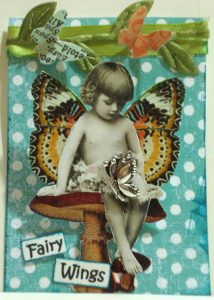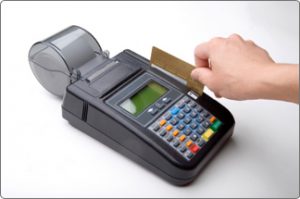There is no emotional attachment to plastic. None whatsoever. Did you ever think about that?

Said another way, I definitely would never intentionally part with my ten dollar bill to purchase that to-die-for greeting card for the birthday party. No matter how awesome a greeting card it might be, I just wouldn’t do it!
And you know there are cards out there that could pass for objects d’art. You know that card! The “it” card that will get passed around the party for everyone to read, admire, and then nod approvingly at the giver of the card. Nope, can’t fathom spending that kind of money on a greeting card. At least not exchanging my ten dollar bill for a card and some couch change in return.

But then again, a simple swipe of that plastic and I’m a happy camper. I am the owner and then the giver of the perfect and very extraordinary greeting card. One swipe and I’m out the door imagining my high approval rating at the party.
Does this sound ridiculous or does this sound like a real life occurrence for some of us? Let’s simply face it, we all have our weak moments for products that we cave under. For me, it’s that one in a million greeting card. The greeting card that relays my sentiment perfectly. Or the one that has a shiny, crafty-type charm with a clever quote glued to it. Or the paper the card is printed on looks like an original from the Italian Renaissance. Heck, the card might even be scented!
Economics
Where am I going with this? Stay here with me for a minute. Let’s shift for a minute to something a little drier. Economics. So there’s traditional economics and there’s behavioral economics. We might think in these terms: one is theory and one is reality. Traditional economics views individuals making calculated decisions based on logic. According to the Center for Financial Social Work, behavioral economics views individuals as irrational emotional beings influenced by biases and experiences in their decision making.
So for today, for this short read, consider the fact that paying with cold cash is more painful than paying with plastic. Shahram Heshmat, Ph. D. studies the impulsive mind. His research finds purchasing with plastic separates the pleasure of buying from the pain of paying.
If such is the case, then what’s a consumer to do? For starters, simply sit with that fact:
“Purchasing with plastic separates the pleasure of buying from the pain of paying.”

Next step? There are many strategies to take this newfound awareness to the next step. As for me, going forward, if I do purchase that card (with cash, of course), it then becomes the gift. Yes, a sentiment in the form of a greeting card can and will suffice. After all, how we use our money has EVERYTHING to do with the emotion behind the action.
In the spirit of giving, I can choose to use my money to purchase a scented greeting card with the perfect verse, printed on fancy paper, adorned with a sparkling charm with case. I’ll stop there. The card will suffice because two missions have been accomplished: 1.) I will have become the owner-turned-giver of the perfect card; 2.) I will have purchased the perfect gift.
To learn more visit http://edis.ifas.ufl.edu/fy1071 .
 0
0
